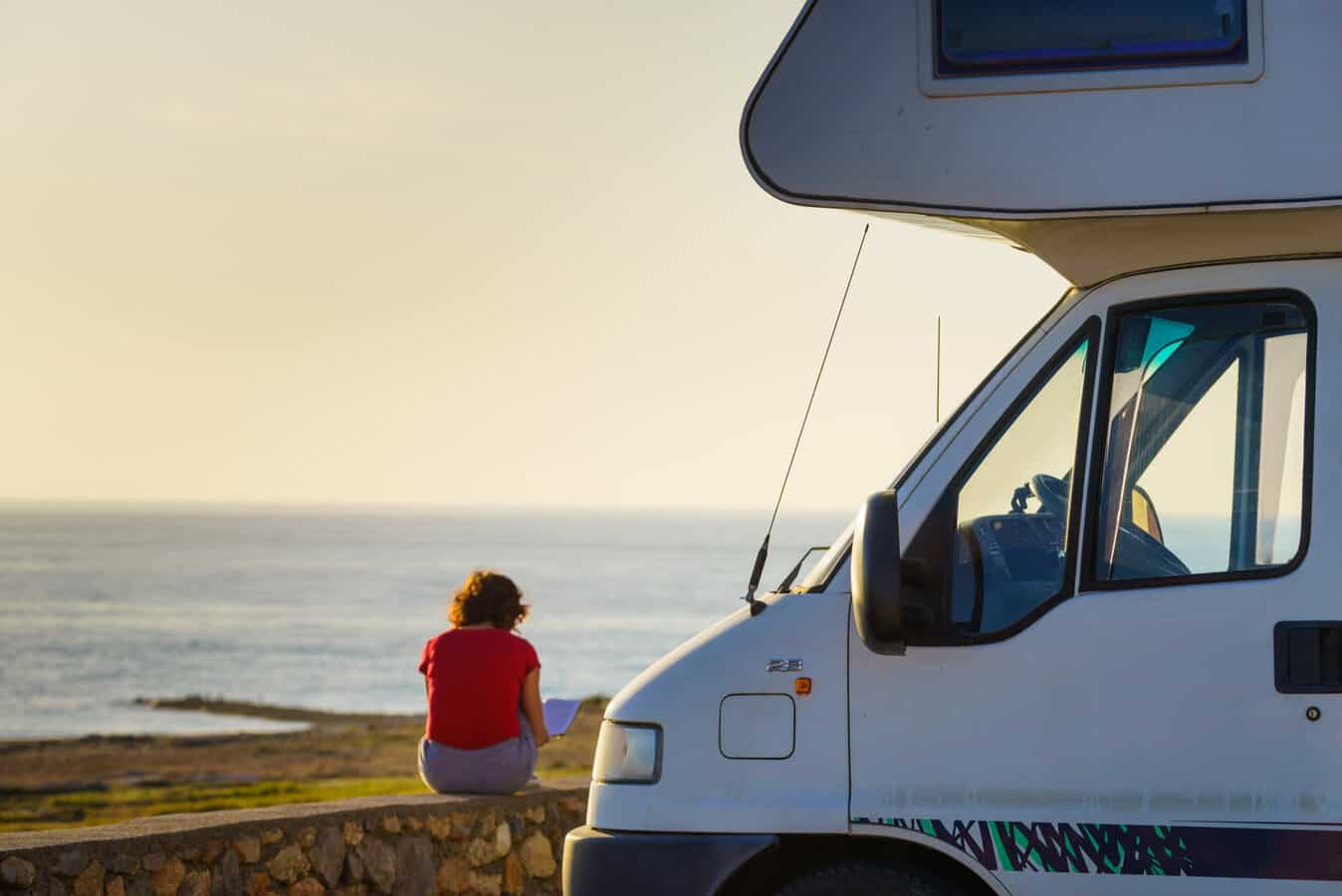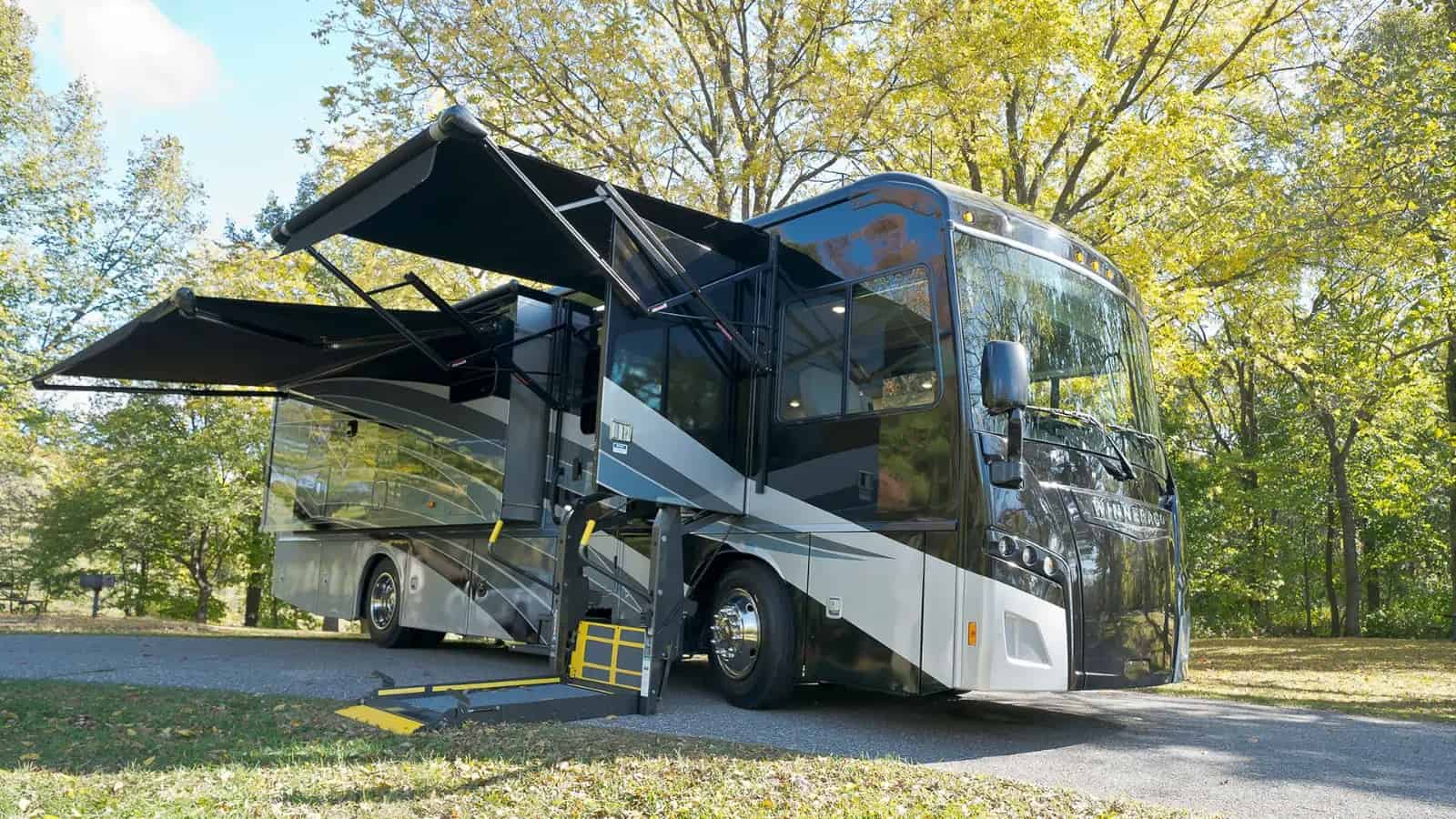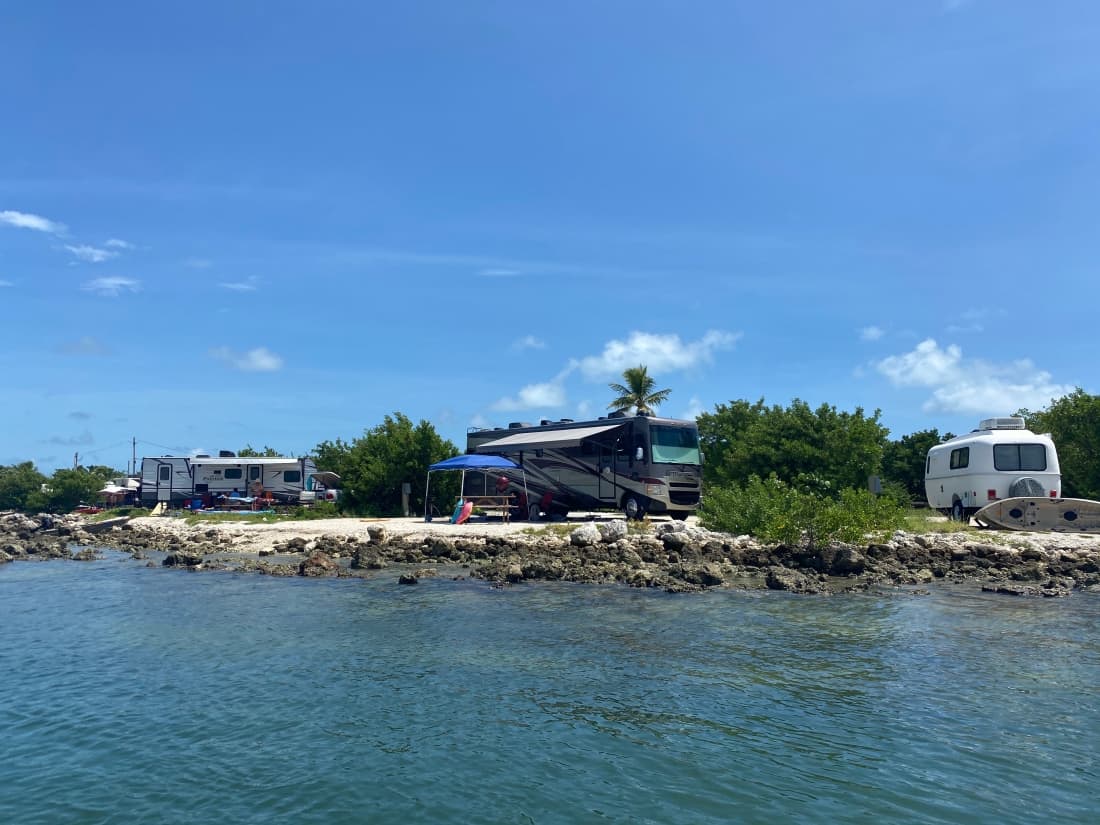
If you are dreaming of setting off on a prolonged RV adventure but don’t know how full-time RVers get mail, this post is for you. Don’t let your fears of becoming disconnected from friends and family, skipping bill payments, or missing out on important news keep you from your dream. You have a few options to get mail as a fulltimer. Keep reading and I will walk you through those mail options.
How Fulltimers Get Mail Without Any Hassles
If you live in an RV or van you can still get mail sent to you. Using the postal system is easiest and cheapest for extended trips up to a year or so. But if you plan on traveling longer than a year, it’s wise to set up a legitimate residential address somewhere in order to renew important documents like your driver’s license, vehicle registration, and insurance. Let’s take a closer look at these two types of ways full-time RVers get mail on the road.
Option 1: Mail Forwarding from a Friend’s Address
If you are taking an extended trip but keeping your house or apartment, simply put in a Mail Forwarding Request with the post office. In the U.S. Postal Service Free Mail Forwarding process, you can forward your mail somewhere you can get mail during your trip. A trusty friend or relative who can ship it to you wherever you land is ideal. The upside of choosing this option is that the free service is good for up to one year. The downside is you will still need someone to ship your mail to your current address. And it might take you several weeks to receive mail.
Option 2: Post Office Box Forwarding from the Post Office
Another way full-time RVers get mail when they don’t have a relative or friend who can forward mail, is to sign up for a PO Box or other mailbox in a nearby town. These mailboxes are fairly cheap and easy to get. You can even get your mail and packages sooner than if waiting for deliver to a residential address. To sign up for a PO Box, go to the local post office where you want a box. The cost varies around the nation, but can usually be rented for less than $75 every six months depending on the size you want. Once you have a PO Box, you can sign up for mail forwarding and the post office takes care of the rest.
Option 3: Private Mail Box Rentals
Private mailboxes are another way fulltimers get mail. For example, UPS Stores rent mailboxes, and many other private businesses do too. Costs vary depending on size and location. If you don’t apply for US Postal Service mail forwarding, this is a good option, but these businesses charge considerably more money. Fees vary, so inquire within.
Disadvantages of Mail Boxes for Fulltimers
A post office box address is not a legally recognized residential address. There is a big difference between the two.
- PO Boxes are just a place to get mail. Since they are owned by the government or a private business, you cannot declare it as your “domicile” for legal things that require you to prove where you live, such as getting a driver’s license or vehicle registration tags.
- A residential address is where you live, sleep, and get mail. Everyone must have a residential address, even if they are unhoused, live in a van, or out of a backpack. Residential addresses are usually required to verify your identity to certain bureaucracies like vehicle insurance companies, government-issued identification, voter registration, etc. These entities do not accept businesses addresses from customers.
How Full-time RVers Get Mail with a Residential Address

If you cannot use a rented mail box for things like registering vehicles and opening bank accounts, you may be wondering, “Well what do I do now?” Fear not. You have options.
Option 1: Ask a friend or family member to let you use their address.
If a friend or relative is willing, you can use their address for official purposes, such as getting your driver’s licenses, passports, voter registration, vehicle registration etc. If you don’t want to burden them with your regular mail deliveries, rent a mailbox somewhere.
Since most domestic documents, bill paying, etc., can be handled online, this method is easier than ever. Automating any payments you have, and renewing as much as you can online cuts down on the amount of mail you need forwarded. Few people are lucky enough to eliminate paper mail completely, but it may be possible if you have no debt and fly low on the consumer purchasing radar.
Option 2: Sign up with Escapees RV Club Mail Service.
The problem of how RVers get mail is easily solved by becoming a member of the Escapees RV Club. I do not receive a commission from them for this endorsement. I mention it because as far as I know, they are the only mail forwarding service for RVers with an address that is legally recognized as a residential location by all major entities and businesses, like motor vehicle departments, banks and insurance companies.
Once registered with Escapees and their Mail Forwarding Service, the club will receive your mal and ship it to your location whenver you request it. This service is not free or inexpensive, but thousands of Escapees members find it an easy way to handle bureaucratic paperwork chores and get mail as a full-time RVer. By declaring Escapees RV Club’s Rainbow’s End RV Park in Livingston, Texas as your permanent address (or “domicile”), and going through the process of registering your vehicles, getting insurance, and voting in the county, you make it extremely easy to get mail as a full-time RVer.
Some things you still need to do in person
If you will live in an RV for a long time, then you will eventually need to do things like renew your driver’s license and vehicle registration. Most times you can do it online, but not always. Occasionally the state government wants to see you in person, like when you need an emissions test. Or, if you need to serve on jury duty. When that happens, returning to your home state is usually required. It’s not always such a bad thing. After all, you did become a full-time RVer so you can travel, right?
Conclusion
Everyone needs an address, no matter how they choose to live. Unfortunately you cannot use your RV as a permanent residential address. A mail forwarding service like the one with Escapees RV Club is the easiest way RVers get mail on the road, for as long as they want.




I’m gonna be a full time RVer and no longer have a permanent address. How do I register and get tags for my soon to be newly purchased RV from a dealer and a truck from a private seller in Florida?
Texas registration:
If you’re already in Texas, visit the local tax office where your local driver license will be and ask them their requirements for registration and inspection and title for your vehicles. Mine gave me a checklist and said I need x, y, and z, and I went and checked the boxes as I did them. It works a lot easier if you are able to get your license and have an address here first, but I’m assuming if they allow it through the service above, it must be possible.
Texas isn’t super hard to register RV. It’s just annoying as a first timer figuring out which hoops to jump through, but once you do it, it seems more simple.
You’ll need an empty weight certification for your title. This can be done at some truck stops or certified weigh stations and they’re about $15 or so.
Every vehicle in Texas needs to pass an inspection in order to get tags. They are about $7-$10 depending where you go. However there are different types of inspections, and this is what confused me at first. I thought I needed a separate type of inspection for an RV, but I was wrong. The thing is- an RV will receive basically the same kind of inspection as a regular passenger vehicle, only finding an inspector who has the space or desire to do an RV inspection might be the tricky thing. I had mine done twice, trying to figure it out, and ultimately I ended up asking around and an RV dealer/repair shop pointed me in the right direction. You need proof of insurance before you can do an inspection.
After inspection you can go apply for your registration and title at the tax office. They’ll need your weight certificate (title), inspection, proof of insurance, and ID. Registration and titles can vary widely. Mine cost around $2700, but I was also paying my purchase taxes on my vehicle at the time I filed for my title.
You don’t have to get a title every year, it’s a one time transfer, which you have to transfer every time you move to another state.
Registration and inspection have to be done every year on each motorized vehicle you own and anything else applicable for registration and/or inspections (trailers, 5th wheels, etc). You have to have the vehicle present for each inspection, but the registration can be done by a family member, I believe as long as they have your written permission (my parents used to do mine when I lived out of state on a military base). Although my cousin found a way around the inspection, she mailed her registration card in without the inspection and they still sent her a sticker. I don’t know how this works, but I’ve noticed sometimes in TX the DMV just approves things if they ‘look ok’, which is fine by me. Inspections are cool and all, but I feel like they are unnecessary. You will fail an inspection if you miss anything on it- an RV isn’t ‘safe enough’ to pass inspection if it’s missing 1 of 5 lights on the side of it… Which is more hazard lights than required for a children’s school bus 😆 Idk….
Hope this helps.
I am purchasing a rv and purchasing a used truck to pull it. But, I don’t have a permanent domicile address for registering and getting tags for my vehicles. What should I do?
Soon I will be living in a shuttle bus, and I will be going to school. My question is, how do I show a permanent address for school/legal purposes?
I am looking at taking a job across the country(Virginia to Washington). Want to purchase an RV and live in it at an RV park for the first year I am there before I decide where I want to rent or buy. I am completely clueless as to how to do this as far as insurance and registration drivers license etc. any help would be greatly appreciated.